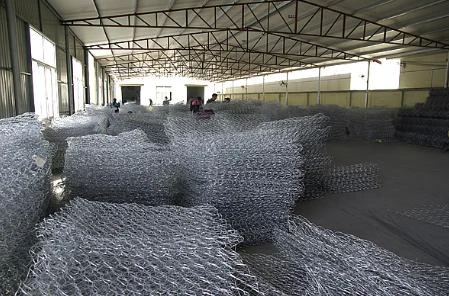 TEL:
+86-13102802206
TEL:
+86-13102802206
 Email:
fencenetting@china.com
Email:
fencenetting@china.com
 Language
Language
 TEL:
+86-13102802206
TEL:
+86-13102802206
 Email:
fencenetting@china.com
Email:
fencenetting@china.com
 Language
Language


The Cost of Barbed Wire Fencing Understanding Pricing Factors
Barbed wire fencing is a popular choice for securing property, farms, and ranches across various terrains. Its effectiveness and durability make it a staple in agricultural settings and industrial applications. However, when considering the installation of a barbed wire fence, one of the primary factors to evaluate is the cost associated with materials and labor. In this article, we will explore the intricacies of barbed wire fence pricing, including the factors that influence costs and tips for budgeting your fencing project.
Factors Influencing Barbed Wire Fence Pricing
1. Material Costs The primary component of any barbed wire fence is, of course, the barbed wire itself. The price of barbed wire can fluctuate based on several factors, including the type of wire—whether it is galvanized, vinyl-coated, or high-tensile—and the gauge of the wire. Typically, a higher gauge number indicates a thinner wire, which may be cheaper but is not always suitable for certain applications. Furthermore, the cost per roll can vary depending on the manufacturer, with standard prices generally ranging from $50 to $200 for rolls that cover 1,000 feet.
2. Fence Posts The type and number of posts used in your fence also greatly affect the overall cost. Common post materials include wood, metal, and fiberglass, each varying in price and longevity. Wooden posts tend to be the least expensive but may require more frequent replacement, while metal posts offer greater durability and longevity at a higher upfront cost. The installation of posts, particularly if set in concrete, can significantly drive up both labor and material costs.
3. Labor Costs Installing a barbed wire fence can be a labor-intensive process, especially if the terrain is difficult or requires significant preparation. Labor costs can vary widely from region to region, and whether you hire a professional contractor or choose a DIY approach will impact your overall budget. Typical rates for contractors can range from $20 to $40 per hour, depending on their experience and the complexity of the installation.
4. Land Preparation Depending on the area where the fence will be installed, land preparation may be required. This could involve clearing brush, digging holes for posts, or leveling uneven ground. These tasks can add to the overall costs, particularly if specialized equipment is needed.

5. Accessories and Add-ons Additional features such as barbed wire spacing, tensioners, gates, and corner braces can also contribute to overall costs. Investing in quality accessories can enhance the longevity and functionality of your barbed wire fence, ultimately providing better value over time.
Tips for Budgeting Your Barbed Wire Fence Project
- Get Multiple Quotes If you're considering hiring a contractor, collect multiple quotes to ensure you are getting a fair price for the installation. - Evaluate DIY Options For those with some construction experience, a DIY installation can save a substantial amount in labor costs. However, it is essential to have the right tools and knowledge to ensure proper installation.
- Plan Your Layout Take the time to carefully plan your fencing layout. Knowing the exact perimeter can help you estimate material costs more accurately and avoid unnecessary overspending.
- Consider Future Needs If you're installing a barbed wire fence with future expansions in mind, consider investing slightly more upfront for quality materials that can withstand weather and wear over time.
Conclusion
Understanding the price of a barbed wire fence involves considering various factors, including material, labor, and land preparation costs. While prices can vary greatly depending on these considerations, setting a clear budget and thoroughly researching your options can help you make an informed decision. Whether protecting livestock, marking property boundaries, or increasing security, a barbed wire fence is a cost-effective solution that can suit a multitude of needs when calculated and planned correctly.